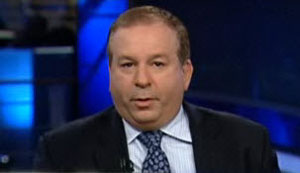 Gluskin Shef’s Chief Economist & Strategist David Rosenberg, who has been on the wrong side of the market in 2009, says a fragile recovery for the U.S. economy would prevent any rate increases from the Federal Reserve in the next two years as the central bank will remain concerned with the real danger of deflation.
Gluskin Shef’s Chief Economist & Strategist David Rosenberg, who has been on the wrong side of the market in 2009, says a fragile recovery for the U.S. economy would prevent any rate increases from the Federal Reserve in the next two years as the central bank will remain concerned with the real danger of deflation.
DJ: “The Fed is not going to want to risk a repeat of the 1996-97 relapse in Japan or a 1937-38 setback in the U.S.A,” said Rosenberg, a closely watched Wall Street economist.
Rosenberg, formerly chief North American economist for Merrill Lynch, has been more bullish on the Treasurys market given his less upbeat assessment of the U.S. economy relative to other economists.
“Many pundits have little realization of just how fragile this recovery is, assuming, in fact, we are in one.” “If we are talking about housing, commercial real estate, residential rents, bank credit, finished manufactured goods or the broad retail sector, there isn’t a shadow of a doubt that deflation will remain the predominant risk,” he added.
Rosenberg said he expects investors will continue to buy Treasurys and forecasts the 10-year note’s yield would fall to 2.75% by the end of 2010 and further to 2.5% by the end of 2011.
Monday, the 10-year note’s yield touched 3.663%, the strongest level since mid-August.
- Bulenox: Get 45% to 91% OFF ... Use Discount Code: UNO
- Risk Our Money Not Yours | Get 50% to 90% OFF ... Use Discount Code: MMBVBKSM
Disclaimer: This page contains affiliate links. If you choose to make a purchase after clicking a link, we may receive a commission at no additional cost to you. Thank you for your support!

Leave a Reply